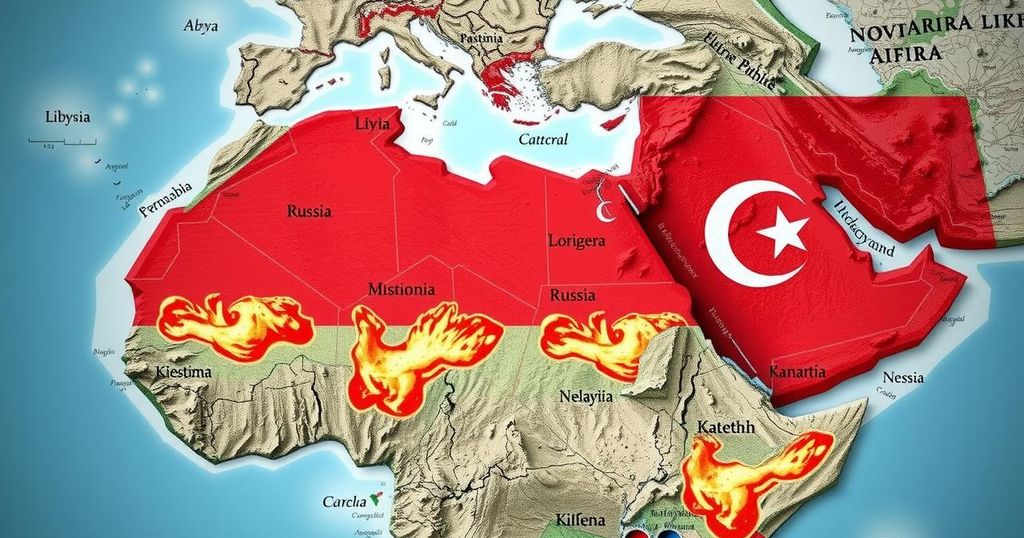In the wake of Bashar al-Assad’s regime instability, Russia is pivoting its military interests from Syria to Libya, focusing on solidifying its influence in Africa. This transition entails supporting Khalifa Haftar against the GNU, alongside transferring significant military resources to Libya. Despite these efforts, experts warn that Libya’s intricate political landscape and competition from other geopolitical players may complicate Russia’s strategic maneuvers in the region.
The Kremlin is shifting its focus from Syria to Libya as it seeks a strategic foothold in Africa following the instability following Bashar al-Assad’s regime. Russia has established military presence through bases and ports in Syria, which facilitated its operations across the Mediterranean and Africa. However, with the changing political landscape in Syria, experts suggest that Libya is becoming the new focal point for Russian military interests.
Russian operatives, including mercenaries, are actively supporting Khalifa Haftar, the field marshal controlling eastern Libya, against the Tripoli-based Government of National Unity (GNU). As the situation in Syria worsens for Russia, analysts note that securing a strong position in Libya will help preserve its influence on the continent. Recent reports highlighted the transfer of military resources, including advanced missile systems, from Syria to Libya, indicating a significant arms build-up.
This shift reflects a deeper strategy to maintain and expand Moscow’s influence in Africa, where the Libyan conflict’s fractured politics mirror opportunities similar to those previously offered by Syria. While Moscow aims to exploit these dynamics to counter Western interests in the region, the complexities of Libya’s political landscape, including the presence of multiple foreign powers, may pose challenges for Russian operations. Amidst the geopolitical maneuvering, experts note that Russia must adopt a more prudent approach, considering the limitations of relying on local leaders like Haftar and maintaining diplomatic ties with other influential nations in the region.
The recent developments in Syria, particularly the fall of Bashar al-Assad, have led to significant changes in Russian foreign policy, particularly in its pursuit of military footholds abroad. Russia has historically relied on its alliances with authoritarian leaders to establish strategic military bases in conflict zones. However, with Syria’s increasing instability, experts indicate a tactical pivot to Libya, where Russian military assistance is already being extended to factions opposing the internationally recognized government. Libya’s ongoing conflict offers Russia an opportunity to broaden its regional influence and counter Western interests, but this transition involves navigating complex international relations and local rivalries, particularly amid competing interests from Turkey, Egypt, and the United States.
In conclusion, Russia’s strategic shift from Syria to Libya underscores a calculated effort to maintain and expand its military influence in Africa amidst changing geopolitical dynamics. While Russia attempts to consolidate its power by backing local factions like Haftar, the challenges posed by Libya’s complex political environment and the presence of rival foreign powers may limit the effectiveness and longevity of its military operations. Experts stress that Russia must remain adaptable and cautious in their approach to avoid repeating past miscalculations in supporting authoritarian figures without ample contingency plans.
Original Source: www.france24.com






